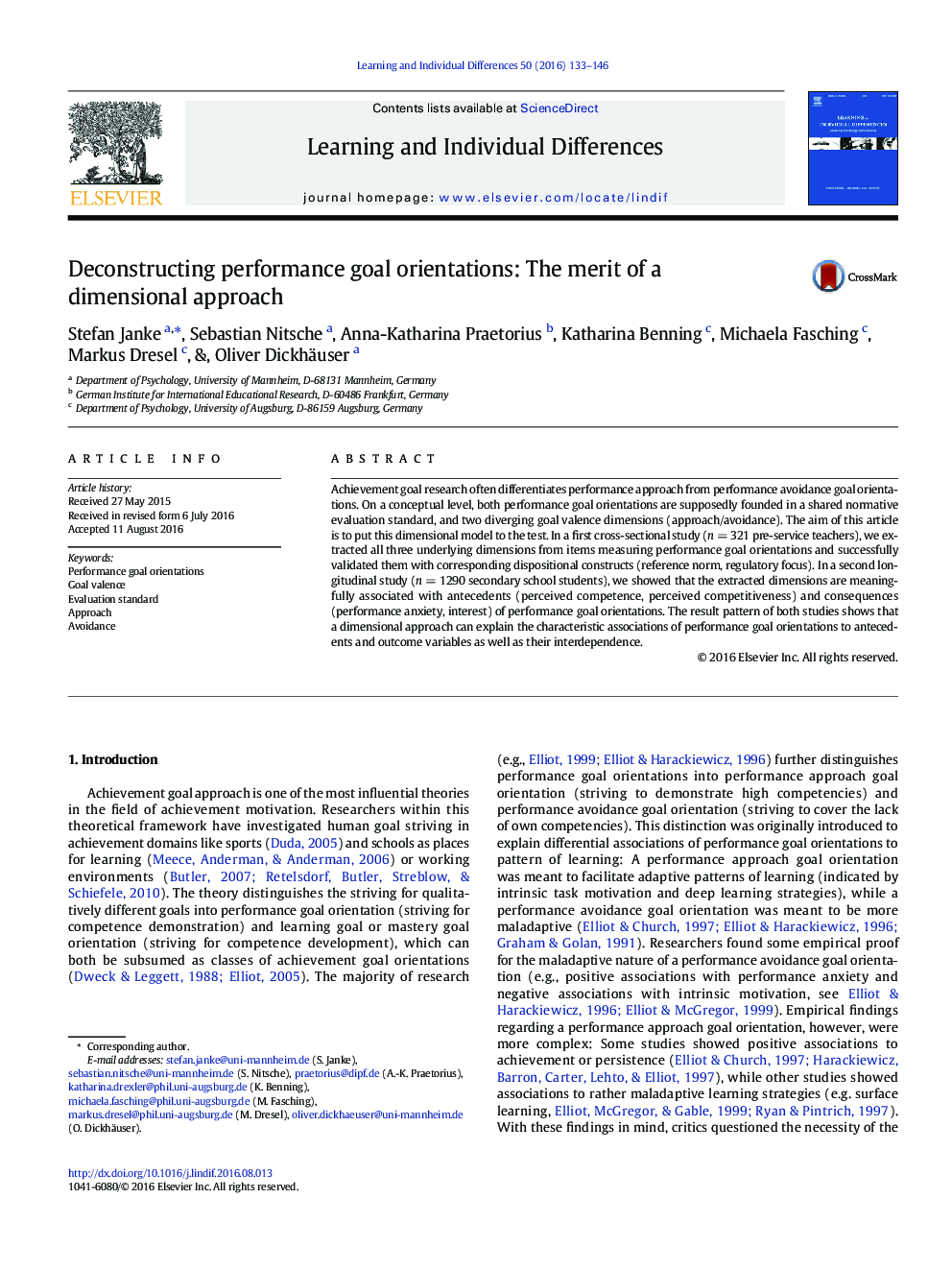| Article ID | Journal | Published Year | Pages | File Type |
|---|---|---|---|---|
| 6844585 | Learning and Individual Differences | 2016 | 14 Pages |
Abstract
Achievement goal research often differentiates performance approach from performance avoidance goal orientations. On a conceptual level, both performance goal orientations are supposedly founded in a shared normative evaluation standard, and two diverging goal valence dimensions (approach/avoidance). The aim of this article is to put this dimensional model to the test. In a first cross-sectional study (n = 321 pre-service teachers), we extracted all three underlying dimensions from items measuring performance goal orientations and successfully validated them with corresponding dispositional constructs (reference norm, regulatory focus). In a second longitudinal study (n = 1290 secondary school students), we showed that the extracted dimensions are meaningfully associated with antecedents (perceived competence, perceived competitiveness) and consequences (performance anxiety, interest) of performance goal orientations. The result pattern of both studies shows that a dimensional approach can explain the characteristic associations of performance goal orientations to antecedents and outcome variables as well as their interdependence.
Related Topics
Social Sciences and Humanities
Psychology
Developmental and Educational Psychology
Authors
Stefan Janke, Sebastian Nitsche, Anna-Katharina Praetorius, Katharina Benning, Michaela Fasching, Markus Dresel, Oliver Dickhäuser,
